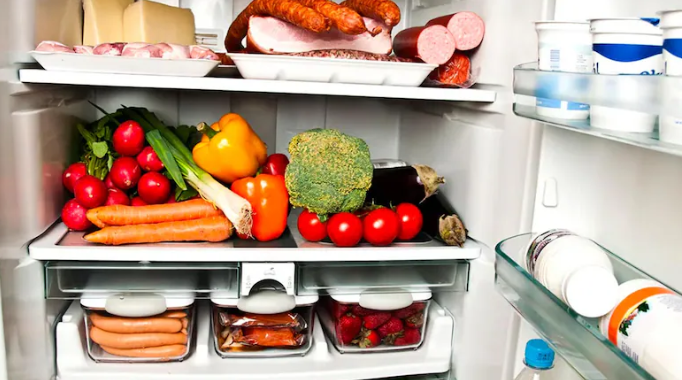411
How to Keep Your Food Safe During Joburg’s Power Outages

Johannesburg’s power grid has been more unpredictable than a Highveld storm, leaving many residents without power for days on end. With frequent outages affecting parts of the city, residents are scrambling to preserve their perishables and protect their budgets. Here’s everything you need to know about keeping your food safe and recognizing when it’s no longer edible.
1. How Long Can Your Fridge Stay Cold Without Power?
Once the power goes out, a closed fridge can keep food cold for up to 4 hours, assuming you don’t open the door. After that, temperatures rise above the safe 5°C mark, putting milk, meat, and leftovers at risk. Keep the fridge door shut as much as possible to maintain the cold air inside.
2. Freezers Offer More Time, But Not Forever
A full freezer can hold its temperature for up to 48 hours if left unopened, while a half-full freezer can last about 24 hours. However, after several days without power, even your freezer won’t be able to preserve everything. Check for ice crystals—if they’ve melted, the food has likely thawed and refrozen, which means it could be unsafe to eat.
3. Milk and Dairy: A Short Shelf Life
Milk, yogurt, and soft cheeses like feta and cream cheese spoil quickly in a powerless fridge. Milk stays safe for only 4-6 hours, while soft cheeses begin to spoil even sooner. Hard cheeses can last a little longer, up to 6-8 hours, but if they smell off, it’s best to discard them.
4. Fruits and Vegetables: The Good News
Fruits and vegetables tend to fare better during power outages. Apples, carrots, and potatoes can last at room temperature for days or even weeks. However, leafy greens like spinach and lettuce spoil quickly—expect them to last only 6-12 hours before wilting.
5. Meat and Poultry: Risk of Spoilage
Raw meat, poultry, and fish spoil rapidly without refrigeration. In a fridge without power, they’re safe for only 4-6 hours. If the freezer thaws, you have 24-48 hours to use the meat, depending on how full the freezer is. Cooked meat can last up to 6-8 hours, but if it has an unusual odor or texture, it’s better to throw it out than risk food poisoning.
6. Preemptively Freeze What You Can
If you have items like mince, soup, or even bread, consider freezing them ahead of time. Freezing extends the shelf life of many foods and can help you make the most of your perishables when power cuts hit. You can even freeze milk or cooked pap in portions, then thaw them safely when the power returns.
7. Tip: Stock Up on Ice
To help extend the life of your perishables, keep bags of ice or frozen water bottles handy. A well-packed cooler with ice can keep food safe for an additional 12-24 hours, giving you more time before things go bad.
8. Know When to Bin It
While it’s tempting to save food, safety comes first. If your fridge has been off for over 6 hours or your freezer has been powerless for more than 48 hours, check for signs of spoilage. Odd smells, slimy textures, or mold are all signs it’s time to throw it out, especially for meat and dairy.
Prepare for More Outages
Ward Councillors have warned that power outages are likely to continue. Stock up on non-perishable items like canned foods, and consider cooking smaller batches of fresh food to avoid leftovers that might spoil in a warm fridge. A gas braai is a great option for cooking thawing meat before it goes bad.
Follow Joburg ETC on Facebook, Twitter , TikTok and Instagram
For more News in Johannesburg, visit joburgetc.com
Sourced:Women And Home



























